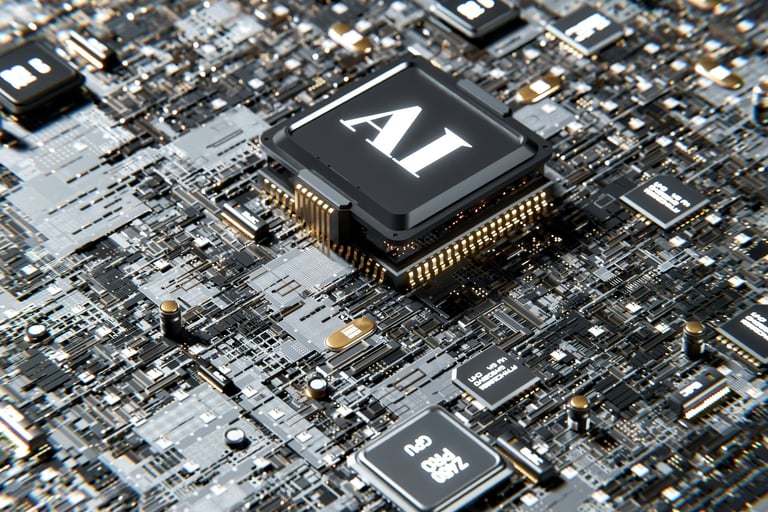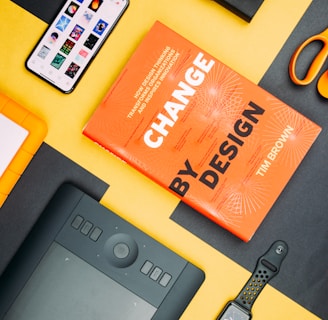Utilizing AI Agents as Future of Work
MARKETING
Muhammad Rizqi Perdana
5/23/20254 min read
In today’s rapidly evolving digital economy, artificial intelligence (AI) is more than just a technological trend but it’s becoming a cornerstone of how we work. Among the most impactful developments in this space is the rise of AI agents. As organizations across industries look to streamline operations and enhance productivity, AI agents are emerging as powerful allies in shaping the future of work.


What are AI Agent?
AI agents are digital entities capable of perceiving their environment, making decisions, and taking actions to achieve specific goals. These agents can range from virtual customer service assistants and automated workflow bots to more advanced systems that analyze data, manage projects, or simulate human reasoning. Their ability to work independently—while continuously learning—makes them a game-changer for modern workplaces.
AI agents can be classified into two primary categories:
Reactive Agents: These agents respond to immediate stimuli based on predefined rules. While effective for straightforward tasks, they lack the ability to learn from past experiences.
Proactive Agents: Equipped with learning capabilities, these agents analyze historical data, predict outcomes, and improve their performance over time. They are essential for complex, dynamic work environments.
Revolutionizing Productivity and Efficiency
AI agents significantly impact workplace efficiency by automating repetitive and mundane tasks, such as data entry, scheduling, and inventory management. These tasks, which often consume valuable employee time, are seamlessly managed by AI agents, allowing human workers to shift their focus toward more creative and strategic endeavors. By handling these routine activities, AI agents enhance overall productivity and enable employees to engage in higher-value work that drives innovation and organizational growth. For example, an AI-powered scheduling assistant can evaluate calendar availability, prioritize tasks based on urgency, and arrange meetings without requiring manual intervention.
Enhancing Decision-Making and Strategic Insight
Beyond automation, AI agents contribute to more informed and data-driven decision-making. In marketing, AI agents analyze consumer behavior, optimize campaigns in real-time, and deliver personalized content to target audiences. In healthcare, AI systems assist doctors in diagnosing diseases, suggesting treatments, and even monitoring patient health through wearable technologies. These intelligent systems continuously learn and adapt, becoming more effective over time. Their ability to process vast amounts of data at speeds unattainable by humans enables businesses to gain insights and forecast trends with unprecedented precision.
Changing Workforce Dynamics
As AI agents become more integrated into daily workflows, the nature of work is shifting. While some roles may be displaced, many more are being redefined. The demand for skills in data analysis, AI management, programming, and human-AI collaboration is on the rise. Workers of the future will need to adapt by embracing continuous learning and upskilling. Soft skills like critical thinking, adaptability, emotional intelligence, and communication will become even more crucial in differentiating human talent from machine intelligence.
Driving Innovation
AI agents possess the capability to process data on a scale far beyond human capacity, enabling organizations to identify trends and opportunities that might otherwise remain hidden. By analysing vast datasets from various sources, AI agents uncover actionable insights that drive innovation and creativity. Their ability to synthesize information from market data, customer feedback, and competitor strategies ensures that organizations stay ahead of industry trends and maintain a competitive edge.
The Role of AI Agents in the Workplace
The future of work is not about humans versus machines, it’s about humans working with intelligent agents to unlock new possibilities. AI agents will increasingly act as teammates, advisors, and facilitators, driving innovation across industries. Organizations that embrace this shift by adopting the right technologies, reskilling their workforce, and fostering a culture of collaboration will be best positioned to thrive in the AI-powered workplace of tomorrow.
If your company need from professional regarding market research, marketing strategy, go-to-market strategy, or anything that related to your business, you can contact us through this link












Other Insights
Our showcase of work, research, and thoughts about business strategy, industry trends, marketing, organization, that helps you a step ahead from your competitors.
Branding is more than color—it's about desire and experience
It's about how capturing the consumer's desire and crafted experience that they craved.
Branding
Turning Urban Needs into Winning Product Ideas
E-Commerce
The competition is getting tighter than before, but there is still an opportunity to seize.
Electronic Appliances
A Guide on How To Build E-Commerce Business in 2025
Agriculture
Skincare
Business Strategy
It's about how capturing the consumer's desire and crafted experience that they craved.
5 Thing You Should Know About Agriculture Business
Skincare Ingredients Trends in Indonesia: 2025
Pricing Strategies and Models
Ingredients that are trending and can be utilized for product development for your skincare brand line.
Find out the type of pricing model that aligns with your business goals.
As the number of urban citizen increases, being able to gather their needs and turning them into product ideas is essential.
Ready to talk?
We’re eager to hear from you! Please fill out the form below and let us know how we can assist you.
